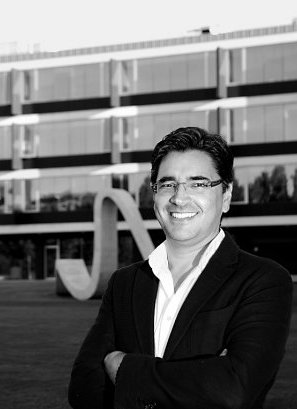
Rita Soares

Sérgio Rodrigues
Ramalho e Manuela Eanes
Former President of Portugal and former First Lady
There are people who mark stories. There are stories that mark people. This is the case with Ramalho and Manuela Eanes, who would have much to tell us if the pages of this interview were to be extended with many others. António Ramalho Eanes was the first democratically elected President of Portugal after the revolution on April 25, 1974. He did his Portuguese military service in Goa, Macau, Mozambique, Guinea and Angola. He was the Portuguese President from 1976 to 1986. Manuela Ramalho Eanes was Portugal’s first lady, the woman who always accompanied Ramalho Eanes in his political life, on official visits, on political campaigns and on trips abroad. She currently is Honorary President of the Child Support Institute, but she began her career at the Ministry of Health. Throughout her career, she has kept close ties with children, through dynamic, formative, cultural and recreational projects. Manuela Eanes has shown herself to be an unavoidable figure on the national scene.

Ramalho Eanes: Is there any particularly significant moment in your life as head of state that you can recall?
As you know, the period in which I served as president of the republic was a difficult time and path, of political, economic, social and even cultural crises, given the need to re-establish tolerance among the Portuguese, to bring them back to «everyday life» and to reconcile them with their past, and also to proceed with the democratic re-institutionalisation of the armed forces. For all these reasons, there is no particular moment in my life as president of the republic that I could highlight, because all of them, for their own reasons, were significant and decisive in the establishment and consolidation of democracy.
Ramalho Eanes: You have been a child, a son, a young man, a husband, a father and now a grandfather. Which of these phases was most dear to you and delighted you the most?
At this point in my life my grandchildren are, of course, a passion. I often tell the same stories about them. At first, I was convinced I was telling them for people to hear them. I came to the conclusion that I tell them stories so that I can hear them again.
Manuela Eanes: You were the first wife in Portugal of a democratically elected president. You were young and inexperienced. How did you face your role?
Naturally. I tried to represent Portuguese women with dignity, but I was never overly worried about my image. I couldn’t have been. We were going through economic difficulties. I was more interested in being useful. I had many requests from people who were struggling. I have always worked in the social field and I have always had the same attitude in my life, to be useful to others. As Mounier says, «we only exist when we exist for others».
For example, at that time we suddenly welcomed thousands of people in Portugal, who came empty handed, returning from Africa. And there was a lack of coordination between different areas. I brought together several institutions, such as the high commissioner for returnees and others, at the same table. I organised the Diplomatic Bazaar, with the help of several wives of diplomats, I always gave all my support to craft organisations and, with a group of children’s literature writers, supported by the Gulbenkian Foundation, we started the Children Literature Meetings. Gradually, I realised that I could continue my work in Belém and began gathering a group of people involved in the social area, from public as well as from private institutions. Thus the Secretariat of Social Action was created, which, for example, defended the social 115 line, working 24 hours a day. When the Secretariat closed, Professor João dos Santos handed me a manuscript called On the Way to a Utopia, a Child Institute. Thus the IAC (Child Support Institute) came about. The aim was to defend children’s rights and their full development. When we held the first congress in 1984, we broke a taboo when we first talked about abused children for the first time. And this year we celebrate our 35th anniversary! To commemorate this, on the International Children’s Rights Day, on November 20, we are going to hold a great solidarity concert at the Altice Arena.
«Fortunately, people are always very affectionate and there is always someone who tells us stories of when they were with us and of situations that we helped solve»
Manuela Eanes: what stands out for you between the Portugal of today and the Portugal of that time (post revoution)?
So much... Our country has changed a lot in all areas - socially, educationally, basic care, the concern for children and the elderly... Portugal is a completely different country today!
Ramalho and Manuela Eanes: Considering the position you held as head of state, General Ramalho Eanes, and the position of your wife, Manuela Eanes, how did you both deal with your personal, married life, in the media glare?
We became used to having a job that made us visible to everyone, both individually, as a couple and even as a family. The Portuguese saw our children grow up ... Fortunately, people are always very affectionate and there is always someone who tells us stories of when they were with us and of situations that we helped solve. And these stories that touch us, give us more inner strength to continue serving others and the country.
Ramalho and Manuela Eanes: What is view of business dynamism in Portugal, in particular young entrepreneurs and their role in society? What message would you give them?
ARE: With regard to technology, there are many people who are rightly alarmed by the impressive progress of information technology and artificial intelligence. There are also many who feel concern and even perturbed by the ‘promise’ of deep learning and its possible consequences. This time is a historical moment of change and rupture. Thus it is natural for individual and social values to undergo disturbances and to disappear. But the new stability will bring the old values with the same or reconfigured expression and also new values.
MRE: The main message that should be given to young people is that of hope in the future.






